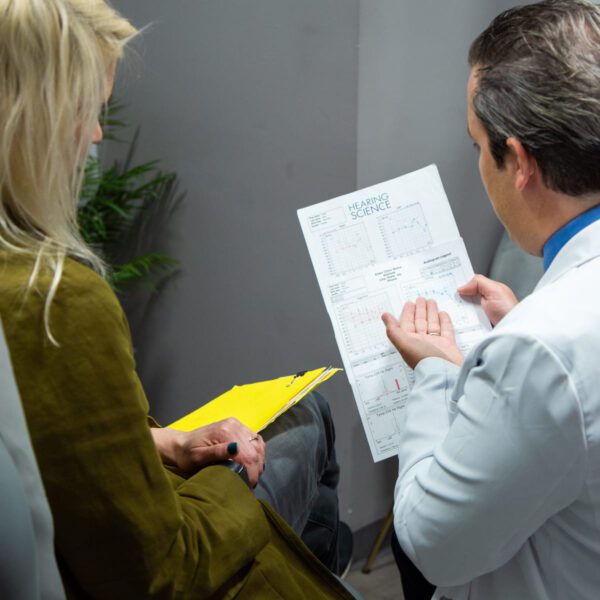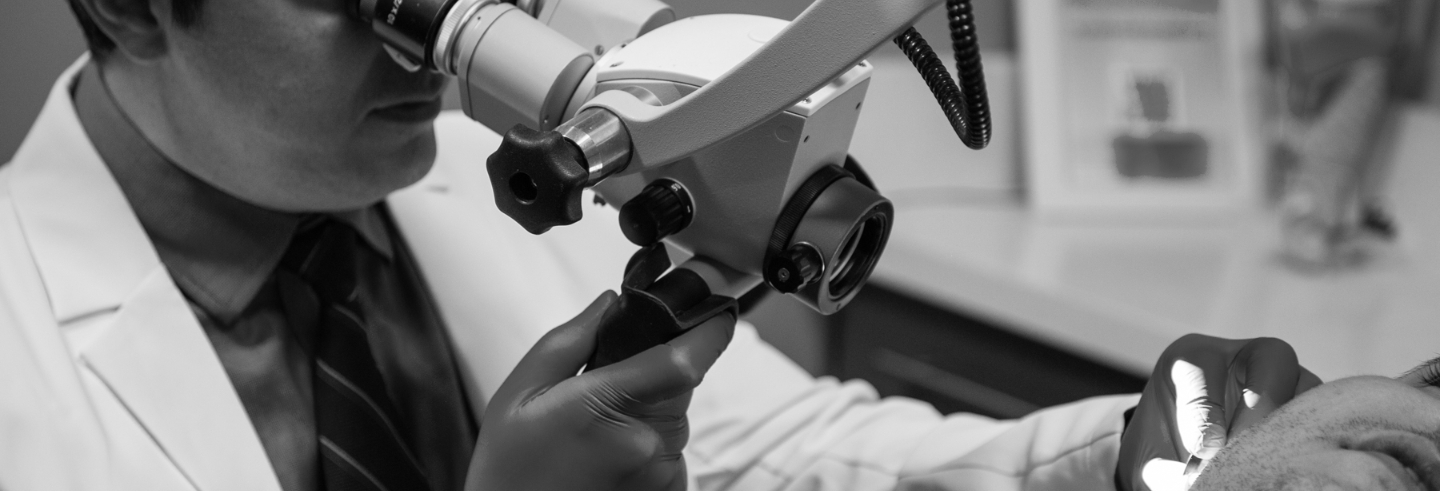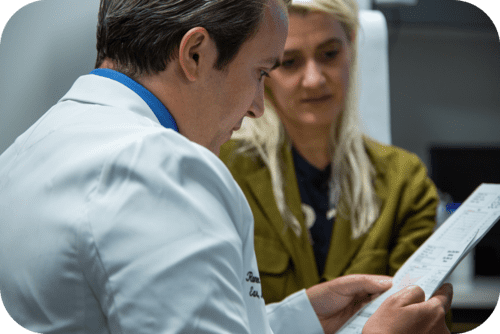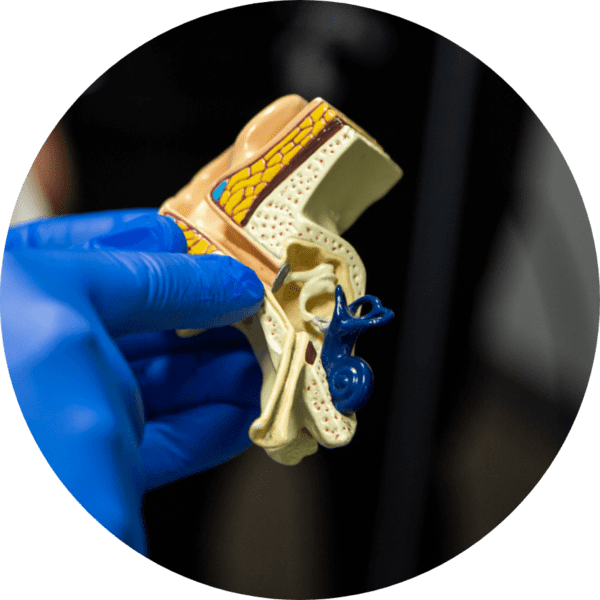Eustachian Tube Dysfunction
What is
Eustachian Tube Dysfunction?
Eustachian tube dysfunction (ETD) is one of the most common diagnoses in the Ear, Nose, and Throat. ETD is often easily misdiagnosed and misunderstood, leading patients to face overwhelming costs, undergo numerous exams, and experience failed treatments with little improvement.
How do I know if I have ETD?
ETD is often misdiagnosed due to subtle exam findings. Many general ENT physicians do not perform the appropriate tests needed to identify this disorder. A thorough history and physical exam by an otologist are required to diagnose Eustachian tube dysfunction. A hearing test is often necessary to differentiate ETD from other similar problems.
What should I expect during my visit for ETD consultation?
Your otologist should spend a significant amount of time reviewing your history, symptoms, and medical issues. If the likelihood of ETD is high, several additional exams may be necessary to properly diagnose the specific type of ETD you have.


What can happen if I don’t treat my ETD?
We believe that chronic ETD is the root cause for most diseases of the ear. Failure to appropriately treat ETD in a timely fashion can result in:
- Recurrent and chronic ear infections
- Worsened Hearing loss
- Cholesteatoma (requiring more advanced surgery)
- Eardrum retraction
- Eardrum perforation
- Damage to nerves of the face, taste, hearing, and balance
- Vertigo
Medical Therapy for ETD
Once the diagnosis is established and more serious problems have been ruled out, medical therapy can begin. This may include nasal steroid sprays, antihistamines, nasal irrigations, corticosteroids, and other decongestants, depending on your individual case. Your otologist may also want to perform additional tests to determine if there are other treatment options that could help reduce your ETD symptoms.
Medical treatment

Some treatment options include:
– Nasal steroid spray (Flonase, Nasonex),
– Anti-histamines (Claritin, loratadine),
– Leukotriene Inhibitors (Singulair),
– Corticosteroids (Medrol dose pack, prednisone),
– Afrin (for short-term relief only),
– Sudafed (for short-term relief only),
– Anti-reflux medications (Prevacid, Zantac, omeprazole).
Each patient is different and should be treated on an individual basis.
Lifestyle modifications

Smoking is a powerful irritant that can worsen Eustachian tube dysfunction. Quitting smoking, including cigarettes and any other inhaled smoke or vapor, is an effective way to significantly improve this condition.
Additionally, patients can use a technique called auto-insufflation, which involves blowing air through the nose into the ears. This can help relieve built-up pressure in the ears, especially during altitude changes.
Allergy Testing and Immunotherapy

Sometimes, an allergy test may identify avoidable allergens such as specific foods or animals. Avoiding these allergens can reduce inflammation and swelling in the Eustachian tube, helping to improve and possibly restore its function.
If you are found to be allergic to unavoidable allergens like pollen, dust, trees, or weeds, your doctor may recommend immunotherapy. Immunotherapy is a personalized treatment method that helps your body build tolerance to these allergens over time.
How is ETD diagnosed?
A thorough history and physical exam by an otologist is required to diagnose Eustachian tube dysfunction (ETD). A hearing test is often necessary to distinguish ETD from other similar conditions. ETD is frequently misdiagnosed due to subtle exam findings, and many general ENT physicians do not conduct the required testing to identify this disorder.
There is no consensus on treatment indications or the optimal timing of interventions. Surgical options are generally considered when ETD does not respond to other treatments, though this is not always the case. A step-up approach is typically followed, progressing from primary to secondary and tertiary care settings. Treatment decisions depend on the etiology, cause, severity, and persistence of symptoms, as well as the invasiveness of the treatment and patient preferences regarding surgery.

Still have questions regarding the condition?
While the information in this website may be helpful, it will never fully relate ear treatment to you. If you are facing any ear problem, please call our office and one of our representatives will talk to you.
CONTACT USTESTIMONIALS
What are patient say about us
Thanks to the expert care and skillful ear surgery I received, my life has been transformed. I can hear clearly again, and I’m forever grateful for the life-changing experience provided by the talented team
“Dr. Nazarian, who gave me back the wonderful gift of hearing!”
“Since the very first time of seeing Dr. Nazarian, I feel that I have been in the best of care- and from the first day and through the my surgery, I have felt that Dr. Nazarian is a very compassionate and caring doctor- more than I have ever seen. I feel very fortunate to have been referred to Dr. Nazarian. He is the best!”